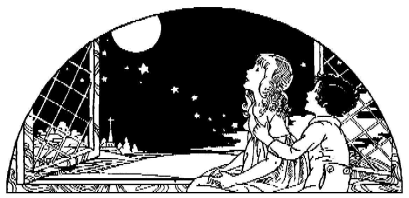|
|
The Ninth Street Center
Infrequently Asked Questions |
Why is thirteen the
golden age of science fiction?
In February, 2000, Jim Freund, on his weekly radio program about science fiction, entertained a question from a listener: what books would he recommend for a 13-year-old girl? This produced several weeks of nostalgiac remembrances from the listeners on a topic Jim decided to call "The Golden Age of Science Fiction is Thirteen".
When I was thirteen I was beginning to get a very strong suspicion that I was VERY unlike other thirteen-year-olds. I seemed unable to learn the rules of social engagement. I didn't know how to be cruel to animals, I didn't know how to whistle at girls, I didn't know how to care who won the world series. Then I read "Odd John" by Olaf Stapledon, and a whole new theory suggested itself: maybe I was a swan disguised as an ugly duckling.
I read Odd John again in 1998 and was amazed at how deeply the tragedy of John, who was after all only a human being, still moved me. I'm sure that Stapledon's prescient analysis of early 20th century European politics meant nothing to me in 1959, but thanks to Olaf's heads-up I've been able to live a life of idealism, hope and faith, fully aware that forces of ignorance and immorality can overtake you at any time but not caring because the stakes for all of us are so high — not unlike the idealism that inspires many people laboring right now to make the world a better place.

— Ralph Waldo Emerson |
I think that science fiction is a critically important literature for young people because it debunks the idea that the values and culture of their parents are the only correct standards for a civilized world. This can even be seen as an overarching theme of almost all science fiction. How many thousands of short stories have been written where an arbitrary cultural prejudice in our society is turned on its head in an alien one? If you think everyone should cut their hair and wear a tie, I'll take you to a planet where criminals who used to have an "A" branded into their foreheads now have to cut their hair and wear a tie. If you think everyone should look like Marilyn Monroe, I'll take you a planet where people who look like Marilyn Monroe are routinely stoned to death. If you think this country is great because we've never lost a war, I'll show you a galactic confederation of planets that has marked Earth as off limits because of our incurable addiction to violence.
Science fiction rarely falls into the naive pitfalls of politically correct dogma and simplistic utopianism, yet it reliably and joyously undermines the smugness with which Earthlings still cling to their ancestor's mindless superstitions and pointless rituals. Is there any more important lesson for young people to learn if they are ever going to solve the problems we have left them with?